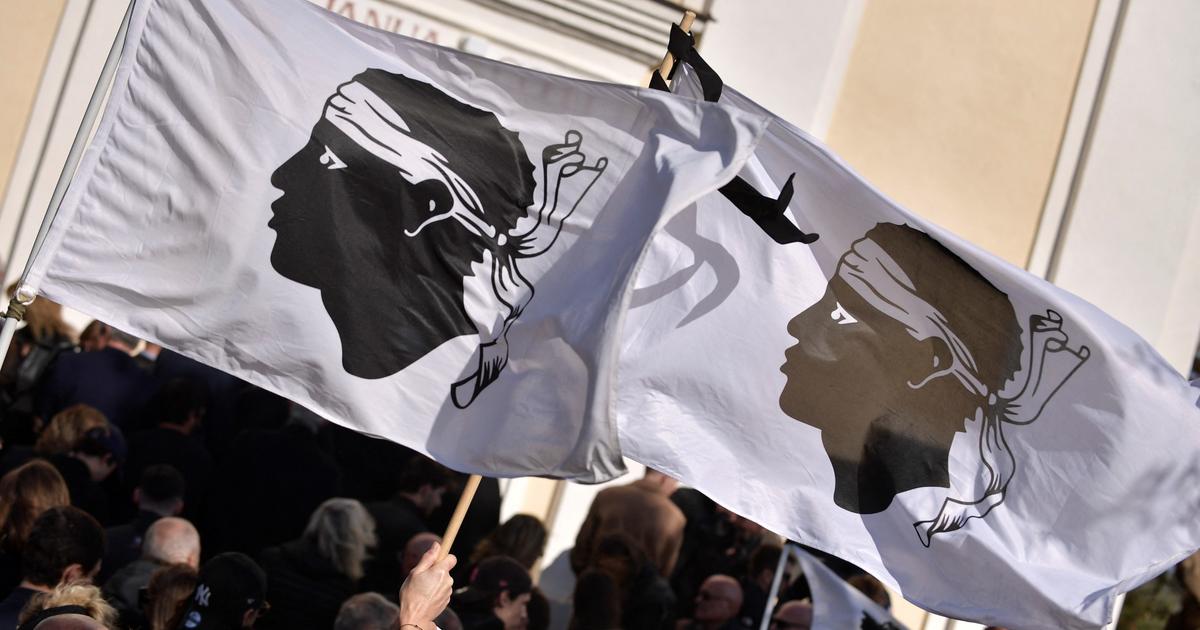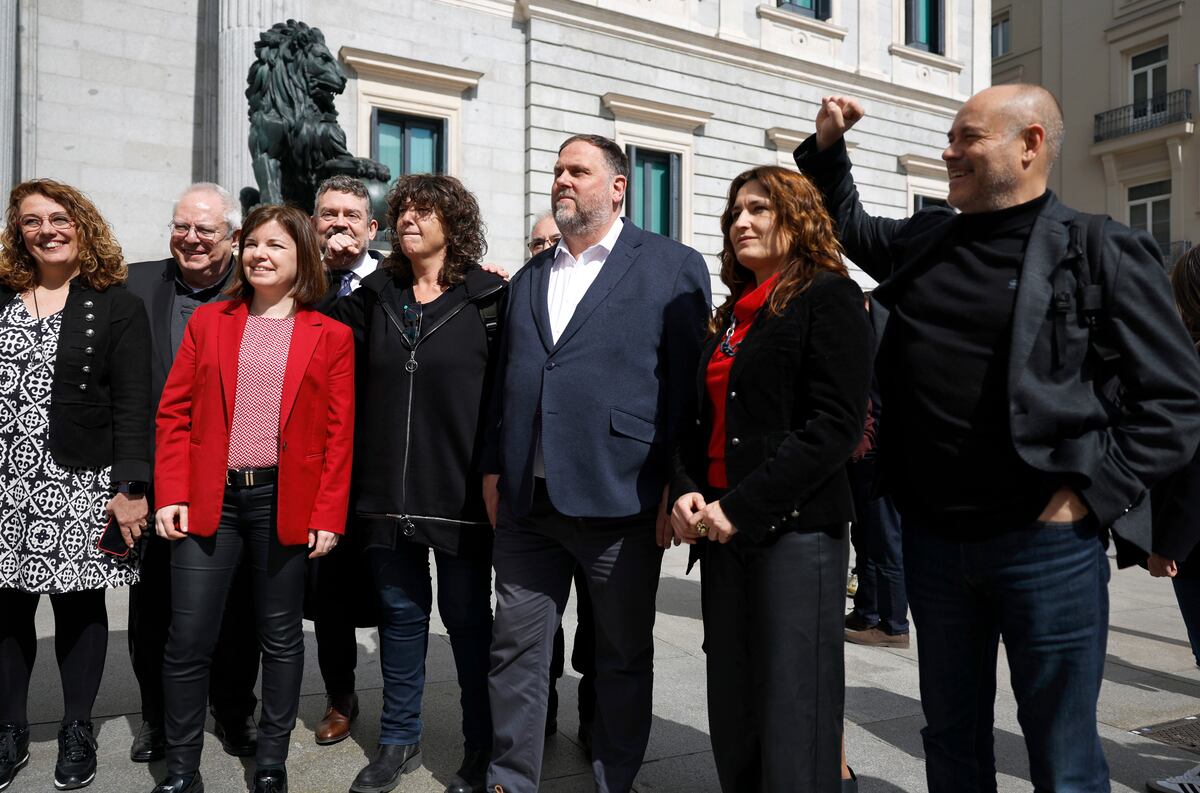Almost three months after the trickle of reducing sentences for sexual offenders began, the Government has finally decided to change the
law that only yes is yes
, although it still does not know how it will do it.
The Executive is aware that it cannot stop this process, because those convicted can take advantage of the current version of the law already in force no matter how much it is modified, but it has decided to make changes to "resolve the problems detected in the future," according to a note. Moncloa official.
This is, for the trials that are carried out with the new law, not for the revisions of the sentences with previous norms.
It is not yet known how he will do it, and it does not seem easy, but what there is is a political decision by the president, Pedro Sánchez, to do something to stop the bleeding of image for the progressive government in a very sensitive matter that this problem is causing , which has become the center of opposition criticism.
Sánchez has thus forced Irene Montero, who has resisted this change for weeks with the idea that they could not find a viable solution.
The Minister for Equality has publicly rejected this possibility on several occasions until La Moncloa has officially confirmed it.
In fact, after the note from La Moncloa, sources from Podemos, Montero's party, admit that a solution is being worked on but they have taken it upon themselves to highlight that "to date there is still no agreement on a valid solution" and They add that "the PSOE is under pressure to return to the previous model and that consent ceases to be the center of the Penal Code",
reports Paula Chouza
.
The message seems obvious: Sánchez and his team have decided to do something now —as La Vanguardia
announced this Saturday—
and Montero has accepted the president's instruction, but still does not see how to apply it, thus showing his reluctance.
The Government knew that it needed to do something in the face of the trickle of reductions in sentences and releases that the application of the only yes is yes law
has been causing since last November
.
Although the public and united position of the coalition partners has been a closed defense of the norm —"the law is solid", repeat the two sectors of the Executive—, the official note from La Moncloa indicates that "since the first judicial resolutions, very serious and rigorous work is being done to guarantee that it does not happen again, resolving the problems detected in the future”.
More information
The Mossos notify several women in Lleida of the release of their sexual offender from prison
The Executive knows, in any case, that the cracks in the criminal part of the text can no longer be plugged: once the law enters into force, nothing can be done, reductions and releases cannot be stopped.
The reason is the basic principle that prevents the retroactive application of a law that harms the prisoner.
And therefore, although the penalties are now modified upwards, this change will only affect those who commit crimes after the new reform has entered into force.
Last Friday the Minister of Justice, Pilar Llop, already had an impact on it.
Both Llop last week, as at other times the Minister of Equality and now government sources, recognize the "undesired effects" that the law has had.
“We are aware of and share the social concern regarding this issue.
Addressing this situation responsibly requires careful attention, because it is complex from a technical point of view”.
They assure that the modification will be agreed between the government partners, "with full harmony" and that the text that is being drafted for the modification will be ready "soon".
The Popular Party urged Sánchez again this Saturday to modify the norm and offered the support of his formation.
“The votes of the PP in the two Chambers are at the disposal of the Government to change the law;
it does not need Podemos or anyone, just common sense”, said its general secretary, Cuca Gamarra, in an act in Burgos.
The official note from La Moncloa strives to avoid the image of a conflict between partners and leaves management in the hands of Equality at all times.
But the tensions of the last few weeks are undeniable and Montero's resistance to the desire of the socialist sector to do something was very evident.
"We are aware of this situation and we want to contribute together to resolve it by working hand in hand with the Minister for Equality at all times," the note added.
The how is not yet defined.
They cannot “specify” the way in which it will proceed;
if it will be touching the criminal part of the law - raising the penalties, for example - or if it will be making adjustments to the rest of the regulations.
A formula that would mean completely eliminating the spirit of the law, which was born precisely from the social outcry over the case of La Manada so that justice would not settle the difference between abuse and aggression based on the violence and intimidation that the aggressors had used to commit the crime. crime, that is, according to the resistance of the attacked women.
In an election year, the most important norm for the protection of women in the last 20 years, after the 2004 law on gender violence, has turned against the Executive itself through the sieve that the party has become penalty of that text.
Although the Government knows that this structural problem cannot be repaired at this point, it does want to try to limit the consequences in the future.
Already this Friday, Montero, reluctant from the outset to touch the law because he attributes what is happening to an incorrect application and not to any gap in the text, alluded to the fact that work was being done to perfect it, government sources confirm.
At a press conference after the second meeting of the crisis committee for the sexist murders that have occurred so far in January, Montero was asked about the statements made by the former mayor of Madrid Manuela Carmena, the president of Navarra, the socialist María Chivite , and the Madrid mayoral candidate Rita Maestre, from Más Madrid, who have spoken in recent days about the need for a change in the law.
The minister maintained the position: "We are not going to make any assessment of these statements,
the law of the only yes
is solid and comprehensive, and allows the State for the first time and in a pioneering way, as the European Parliament itself is recognizing, to offer the comprehensive protection that women who are victims of sexual violence have the right to receive”.
But he qualified that they were "working" for a "correct application" of the norm: "Logically, we share the concern that Spanish society also has for those judicial decisions to reduce sentences that do not even correspond to the decree of the Prosecutor's Office [the prosecutor General of the State, Álvaro García Ortiz, urged prosecutors to oppose "as a general rule" to the reduction of sentences when the punishment imposed with the previous law was within those provided for that crime in the new norm] nor with the
law itself
of only yes is yes
and of the spirit and will of the legislator, and of course, precisely because we are concerned, we are also busy doing everything in our power and everything that is necessary.
We have spent months doing everything that is necessary to guarantee the correct application of the law that
only yes is yes
and it will continue to be so, ”he pointed out.
The Law of Comprehensive Guarantee of Sexual Freedom, the so-called law of
only yes is yes
, came into force on October 7.
The objective, that the focus to judge sexual violence would stop being on the resistance that the victims had put up and put it on the consent of the women, freely and clearly expressed.
For that, the abuse disappeared and everything was unified in aggression.
The range of penalties was extended, to include in a single type (aggression) all the possibilities and punish from the lightest to the most serious.
By redoing the sections, some of the minimums were lowered ―for example, in penetrative sexual assault, it went from six to four years—, and some of the maximums ―such as sexual assault without any aggravation, which went from five to four years.
These changes in the Penal Code entailed an obligation towards already convicted offenders established in the Constitution and in the Penal Code itself: to accept the sentence revisions requested by those inmates who may benefit from the new law.
The “work” that Montero affirms that they have been doing for months began in mid-November, when the first sentence reductions and the first releases began after the conviction reviews.
So, the first reaction of the Government was to threaten to change the norm due to "unwanted effects";
but Equality closed in band and attributed the reductions to an incorrect, incomplete and sexist reading of the law.
The Executive decided to wait for the Supreme Court to unify criteria, hoping that it would do so in the same direction as the Prosecutor's Office.
However, the Supreme Court has already endorsed the reductions on half a dozen occasions.
The releases already reach twenty and there are almost 300 sentence reductions.
Spokespersons for all the ministries involved —Equality, Justice and the Interior— and for any other government body have repeated that these consequences of the entry into force of the law "were not the will of the legislator."
But these implications have caused surprise and social alarm, attacks in Parliament by the opposition —Carla Toscano, from Vox, went so far as to call Montero a “liberator of rapists” in the chamber— and tension between the coalition partners, especially between Equality and the socialist part of the Executive, who were also already dragging the internal battle that has caused the so-called
trans law
.
Despite this tension within the coalition, during the last two months a block defense of the law has been maintained by both partners.
A necessary unity for a government that is facing local and regional elections this year and, shortly after, the general ones.









